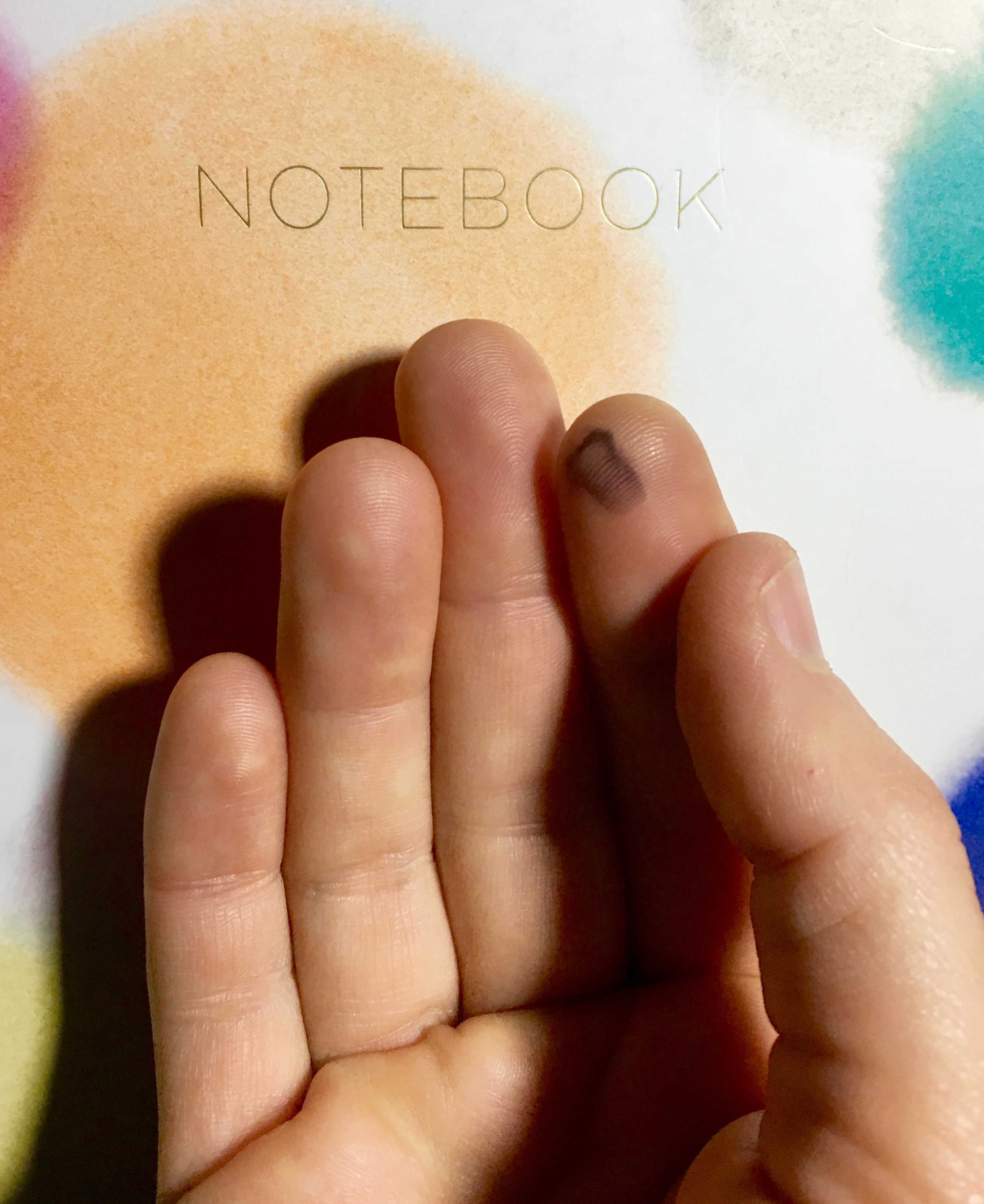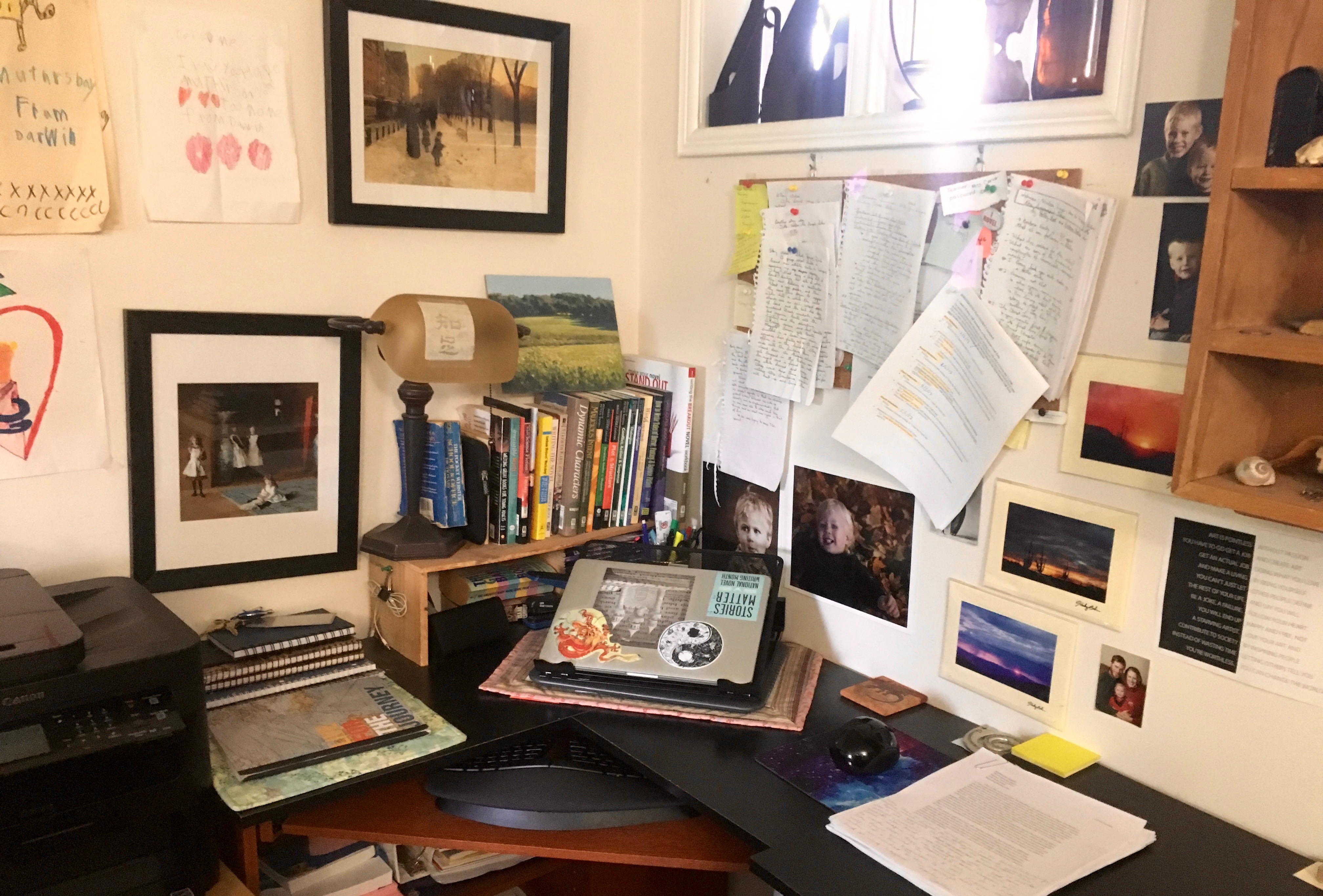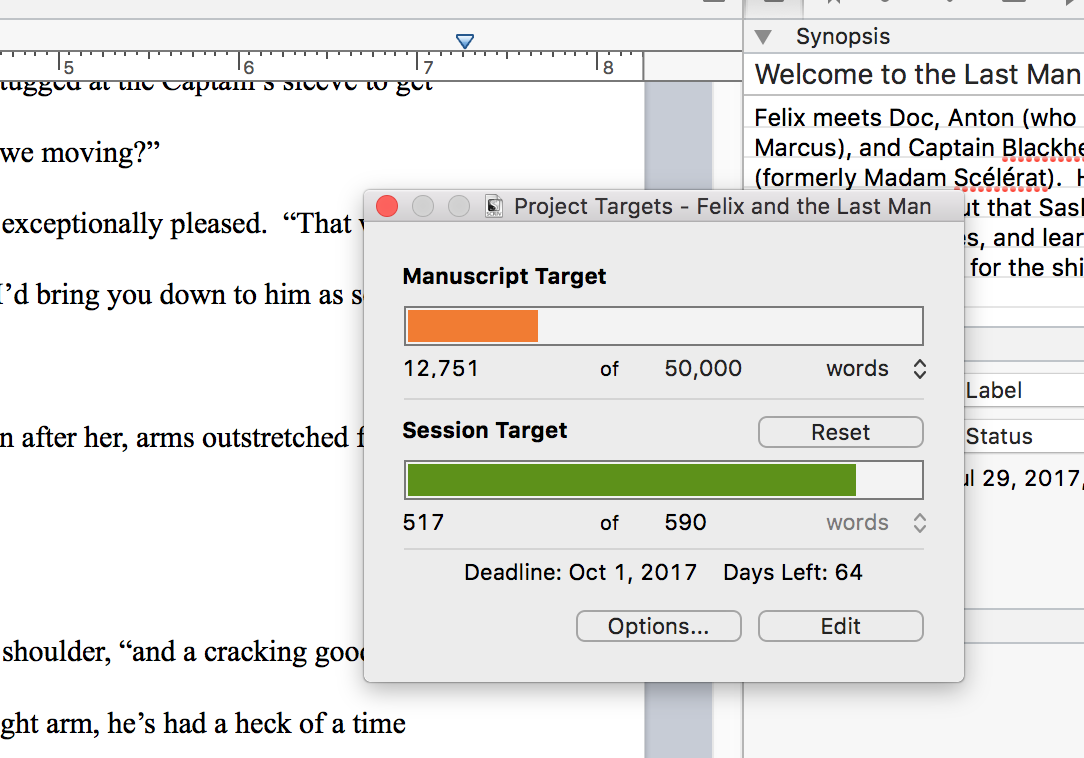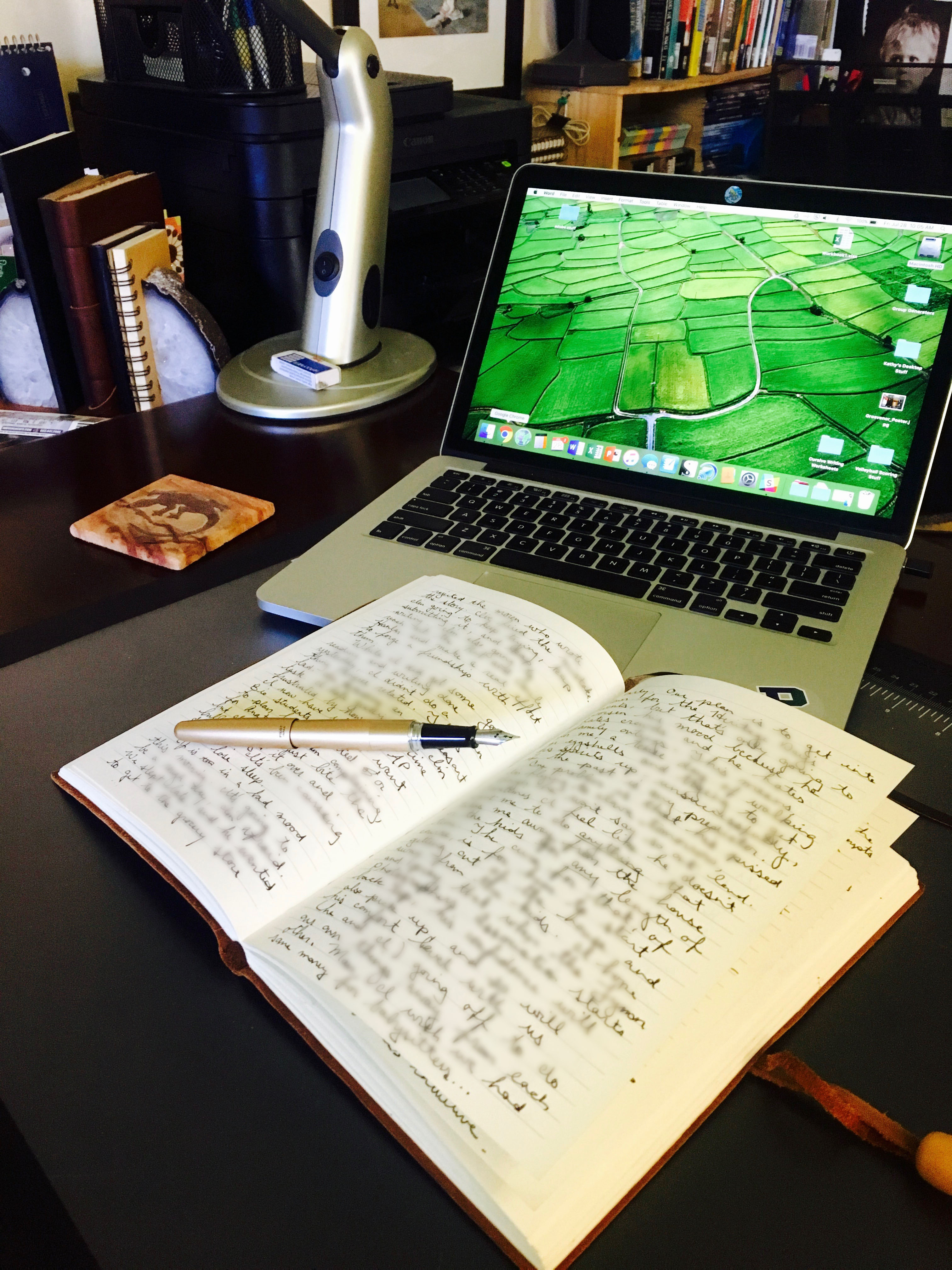Whenever someone asks me what I do for a living, I always balk at the idea of saying, “I’m a writer.”
The reason is that I don’t make a living by my writing. I aspire to, of course, but if we’re basing things on paychecks, and most people do, then I’m a teacher. However, were I to die mysteriously, and the cops came to my home to investigate, the lead detective would undoubtedly proclaim, “Well, she was a writer.”
Now, isn’t that a heartening thought?
This morbid notion popped into my head yesterday as I was avoiding work by tidying up my writing nook. So, how would said detective figure out my secret identity of “Writer?” as she searched my home?
#1: Writers Tend to Collect Notebooks
 Let’s start with my stack of five beautiful notebooks, most still empty, that I’ve collected over the course of this past year. Don’t roll your eyes at me. Five is a fantastic example of self-restraint, people! I could easily have bought so many more.
Let’s start with my stack of five beautiful notebooks, most still empty, that I’ve collected over the course of this past year. Don’t roll your eyes at me. Five is a fantastic example of self-restraint, people! I could easily have bought so many more.
Haven’t you ever caught sight of a notebook, sighed as you picked it up, caressed its cover and flipped through the blank pages, tracing your fingers down the perfect lines printed therein to feel the grain of the paper? No? Huh. Weird.
What is it about notebooks that I find so irresistible?
Maybe it’s the potential of an empty notebook that attracts me. So many pages to be filled. So much potential fun to be had in the process of filling said pages. Obviously, I write on a computer (ahem), but whenever I’m feeling blue or restless or romantic or nostalgic or anxious, I turn to the comfort that comes with grabbing a beloved writing implement and making marks on paper in a notebook. Every morning, I journal three pages of whatever dribbles out of my brain before my day gets going. (That’s a tiny lie. I grind the beans and ready the french press and pour myself a mug of coffee first). It’s wonderful, and for my morning pages I have a favorite fountain pen dedicated to that activity and no other.
That brings me to the second piece of evidence that the detective would use to identify me post-mortem as a Writer: my collection of fountain pens.
#2: Writers Tend to Collect Pens
 I doubt there’s a writer alive who doesn’t understand my love affair with notebooks. I mean, I can’t go into a store and not wander until I find the office supply aisle so I can check to make sure they don’t have a fabulous notebook that must be rescued and taken home. And if it’s an office supply store? Forget about it.
I doubt there’s a writer alive who doesn’t understand my love affair with notebooks. I mean, I can’t go into a store and not wander until I find the office supply aisle so I can check to make sure they don’t have a fabulous notebook that must be rescued and taken home. And if it’s an office supply store? Forget about it.
But not everyone knows the secret joys of a good fountain pen. I’ve written before of my pen obsession in my post about Scrivener. The pen affair started with me watching the Quentin Tarantino film Inglorious Bastards.
Uh… you fell in love with fountain pens watching a movie about killing Nazis?
You bet I did! Early on in the film, there is a quiet and yet hyper-intense interrogation scene in which Christoph Waltz’s character pulls out a 1940’s era fountain pen, disassembles it, inks it carefully, reassembles it, and begins to record information. The scene wasn’t even over before I thought to myself, “I have GOT to get a fountain pen!”
So, I did. After a bit of online research (unsurprisingly, there is a thriving online community of people even more obsessed with fountain pens than I am), I settled on a Pilot Metropolitan in a respectable black finish.

That’s not the pen I journal with, though.
See, I loved that first fountain pen so much that I bought another one with a silver finish to match it. Then I bought one with a gold finish. That third pen turned out to be my favorite, and it’s the one I journal with every morning. Then I bought… more fountain pens.
I’m up to nine now. When I finish my master’s program in creative writing at Lesley University this summer, I plan on treating myself to a gorgeous retractable fountain pen that I tested out at the Bromfield Pen Shop in Boston. It’s a little pricier than my $20 Metropolitans, but it’s SO going to be worth it.
The thing about fountain pens is this, though. They require the proper paper to be truly enjoyed.
#3: Writers (sometimes) Know Way Too Much About Paper
You can’t just grab any old notebook and write in it with a fountain pen. The moment you try, and I’m speaking from direct personal experience here, you will discover (perhaps for the first time) that not all paper is the same. In fact, most paper in most notebooks is crap. The second you touch even an extra fine fountain pen nib to a sheaf of paper, the quality of that paper will be revealed by how much bleeding and feathering of ink you get. Bond weight is a thing I now ask (hapless) salespeople about, as is paper finish and fiber blend.
And what I now know is this: there is NO relationship between the price of a notebook and the quality of the paper within.
Moleskin? Bleck. Those lovely leather bound tomes of blank pages adorning the shelves at Barnes and Noble? Ugh. You’d better choose a subpar writing implement if you’re going to use those babies to record your deep thoughts or your next best seller. The 25 cent, one subject, spiral bound Staples brand notebooks? Glorious. The paper handles a fountain pen like a dream.
Which is why, when madam detective moves from my writing desk adorned with my stack of lovely notebooks and my somewhat ridiculous collection of fountain pens (and inks. So many inks, but I won’t go there), to open the office closet, she will stand and gape at the stack of almost forty 1-subject Staples brand notebooks that I’ve hoarded there. Hey, you never know when Staples stops making those bad boys or changes the paper they use in them.
In conclusion, I pay the bills by teaching, and so I’m prone to telling people that I’m a “Teacher.” In my heart (and my psyche), however, I am a Writer and I’ve left plenty of evidence to prove it.
Do you have a favorite pen that you love? Are you a sucker for a blank notebook with a pretty cover? Come one, I know I’m not the only one with this affliction.


 In middle school, I stumbled across a battered old copy of Stephen King’s short story collection,
In middle school, I stumbled across a battered old copy of Stephen King’s short story collection, 








 Let me be clear. I will never give up my fountain pens and my notebooks, both of which I collect like someone with a problem. Whatever. Some people collect Hummel Dolls. Some people collect Beanie Babies. I collect fountain pens and notebooks… and a few other things, but that’s a whole different post. When I am feeling stuck for ideas or just creatively drained, nothing greases the hinges and swings wide the doors to my imagination like writing with a gorgeous fountain pen loaded with some of my favorite ink in one of my favorite notebooks. So great of an advocate of this strategy for breaking up creative writing blocks am I that I regularly buy and distribute fountain pens (pre-inked with some of my favorite inks obtained via the
Let me be clear. I will never give up my fountain pens and my notebooks, both of which I collect like someone with a problem. Whatever. Some people collect Hummel Dolls. Some people collect Beanie Babies. I collect fountain pens and notebooks… and a few other things, but that’s a whole different post. When I am feeling stuck for ideas or just creatively drained, nothing greases the hinges and swings wide the doors to my imagination like writing with a gorgeous fountain pen loaded with some of my favorite ink in one of my favorite notebooks. So great of an advocate of this strategy for breaking up creative writing blocks am I that I regularly buy and distribute fountain pens (pre-inked with some of my favorite inks obtained via the  I love the corkboard feature for organizing my chapters. I love its pre-generated templates for character development. I love its split screen, its compile feature, and its project analytics. Holy cow, do I use the words “look” and “gaze” and “glance” a lot in my first drafts. There are hundreds of other features embedded into this program that are also super wicked lots of awesome, but the feature that caused me to fall in forever love with Scrivener is its Project Target feature.
I love the corkboard feature for organizing my chapters. I love its pre-generated templates for character development. I love its split screen, its compile feature, and its project analytics. Holy cow, do I use the words “look” and “gaze” and “glance” a lot in my first drafts. There are hundreds of other features embedded into this program that are also super wicked lots of awesome, but the feature that caused me to fall in forever love with Scrivener is its Project Target feature.